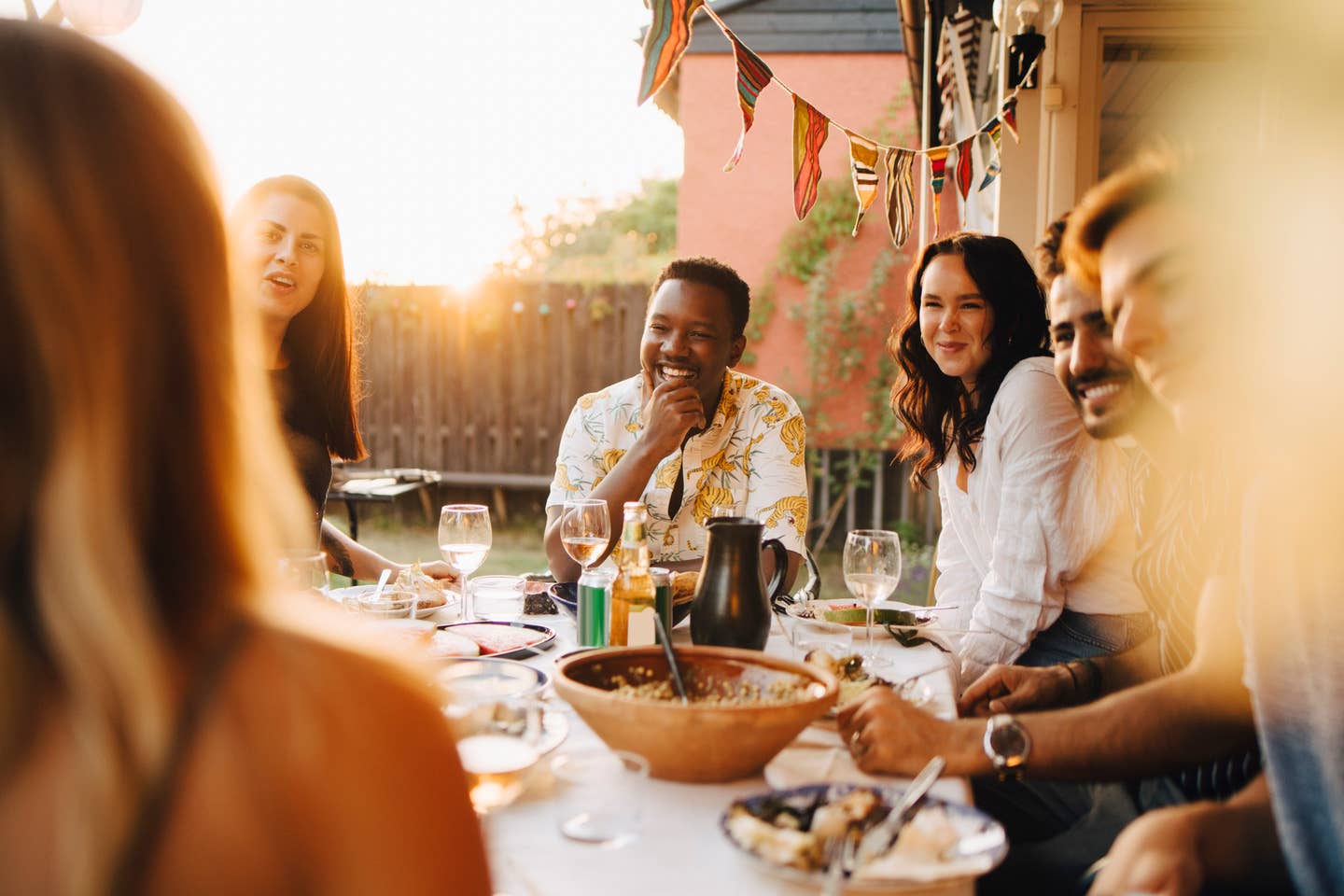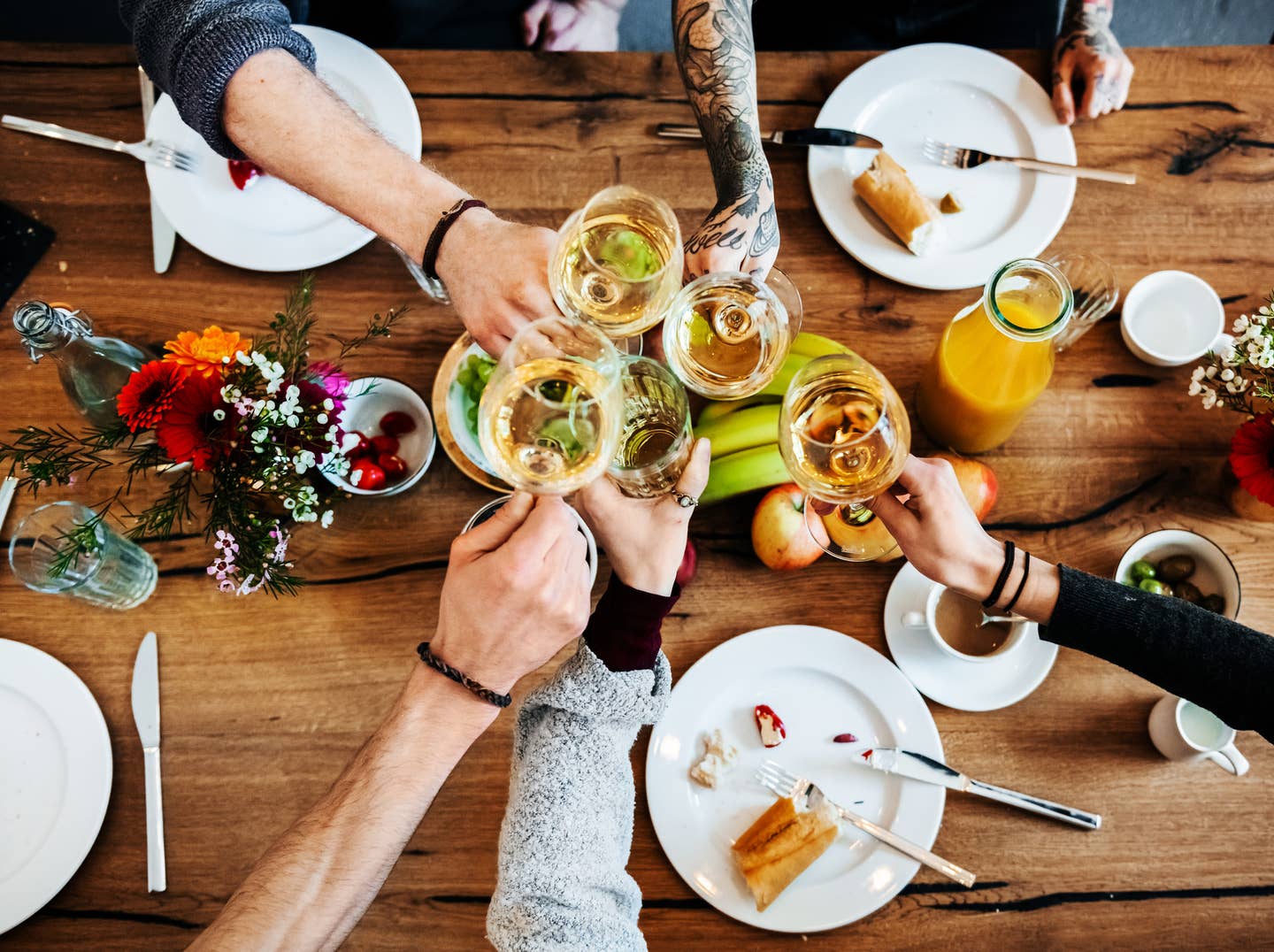
3 Ways Going Plant-Based Can Affect Your Social Life
About a year ago I found myself sitting at a friend's house for dinner, knowing they were serving chicken and trying to figure out how to get out of it. I’d been eating vegetarian in private for months, but couldn’t seem to stick to it when I was out to eat or at someone else’s house. I hated eating meat, even on those rare occasions, but I didn’t want to be a burden.
As the meal was served, I stared at my plate and wondered how I’d get it down. Finally, I made a deal with myself: if I ate this meal without making a fuss, I’d never force myself to eat meat again, no matter how uncomfortable the situation became because of it. Swallowing those last few bites, I knew it would be the last time I ever ate meat or at least a very long time.
Looking back, I’m sure the host would have understood if I just spoke up, especially ahead of time. Unfortunately, because I’d heard so many negative stereotypes throughout my life about plant-based eaters, I shied away from something that was right for me, just to avoid potential judgment and keep social situations comfortable for others. I went through a lot of meat-eating months to avoid social conflicts, going so far as to pick a restaurant without any meatless options on my own birthday.
I’ve been a vegetarian for over a year now, and I’m extremely happy with my lifestyle and food intake. Now that I stopped caring what others think about what I eat, I’ve learned that eating what I am comfortable with is worth more than avoiding uncomfortable situations. Here’s three ways going vegetarian has affected my life, and what I wish people knew about plant-based eating that could make social situations easier for vegetarians and vegans.
1. Fear Of Judgement for Being Plant-Based
When I go out to eat with someone and they order meat, they often begin to tell me a story about how they really don’t eat meat that much, just at restaurants. Or that they’d really like to be vegan, but they have a health condition that stops them. Or that they’ve started Meatless Mondays, and they’re on the path to giving up meat completely. I always say the same thing: Good for you for eating what feels right, but you don’t need to justify your eating habits to me!
I really don’t care what’s on anyone’s plate, or how much meat they eat on a daily basis. I ate meat for the first portion of my life, and I give myself permission to eat meat in the future if I change my mind. Becoming a vegetarian did not give me the right to judge anyone else for their food intake, and I don’t plan to start caring about anyone else’s diet anytime soon.
Unfortunately, this assumption that plant-based eaters are judging others for eating meat can lead to some tense situations in my social life. I wish people knew that plant-based eaters don’t judge what others are eating: As long as I get dessert after my meal, I consider it a great dinner date!
2. Assuming Plant-Based Eaters Want To Convert Everyone
When people aren’t assuming I’m judging them for eating meat, they’re worried I’m going to try and convert them to plant-based eating. I think this assumption comes from the few plant-based eaters who do try to get people to change their habits, but those few individuals are not the majority. Just like in all groups, there will be some people who try to push their beliefs on others, but most people will not.
Something I’ve dealt with a lot in the past year is having meat-eaters know I am a vegetarian, and constantly offering me meat, asking if their plate looks good, and teasing me with their food. I’m happy to joke along, especially being from the midwest, where brats and burgers are a cultural staple. However, I do find it interesting that when meat-eaters repeatedly ask me to eat meat it’s seen as a joke and harmless, but if roles were reversed, it would be seen as another plant-based eater trying to convert everyone.
Unless a plant-based eater is bothering you about your food intake, you can assume they don’t care what you eat. If you go into the relationship assuming they don’t want to convert you, chances are, the topic will never even come up.
3. Feeling Like An Inconvenience To Hosts At Events
Before becoming a vegetarian I worried that social events would never be the same since I couldn’t partake in group meals. It turns out that after a bit of plant-based eating, you find tricks like eating before events, bringing your own food, or other ways to get around this issue. One problem I didn’t expect, however, was feeling like I’m offending hosts by not partaking in their meal.
Since I choose to not eat meat, I don’t mind doing my own thing for the meal and just enjoying the social aspect of the event. The awkward part about social events with food isn’t the fact that I can’t eat anything, it’s the awkward explanation hosts do about not having meatless options and offering to run out in the middle of an event to go get some. As someone who loves hosting get-togethers, I do understand the need to acknowledge the situation and offer, but often, people go so far overboard that it makes me feel guilty.
Instead of working towards a solution, overly apologizing and calling extra attention to the situation focuses the blame back on the plant-based eater and makes them feel like a problem. Plant-based eaters are used to figuring out their own food solutions for events, so if a guest tells you they brought their own food, rather than pushing it, just accept it and move onto another topic. Chances are, the plant-based eater already feels guilty for potentially offending you, and creating a scene only makes it worse.
Don’t Focus So Much On Food
Overall, there are many ways my social life has been impacted by something as simple as taking meat out of my diet when in reality, all that should change is what’s on my fork and spoon!
Social situations can make vegetarians, pescatarians, and vegans avoid sharing about their plant-based eating or even feel forced out of their preferred lifestyle to cater to others. These awkward encounters kept me from living a plant-based lifestyle for so long, when in reality, good friends and family won’t worry too much about what you’re eating, and just enjoy your presence.
More From The Beet






